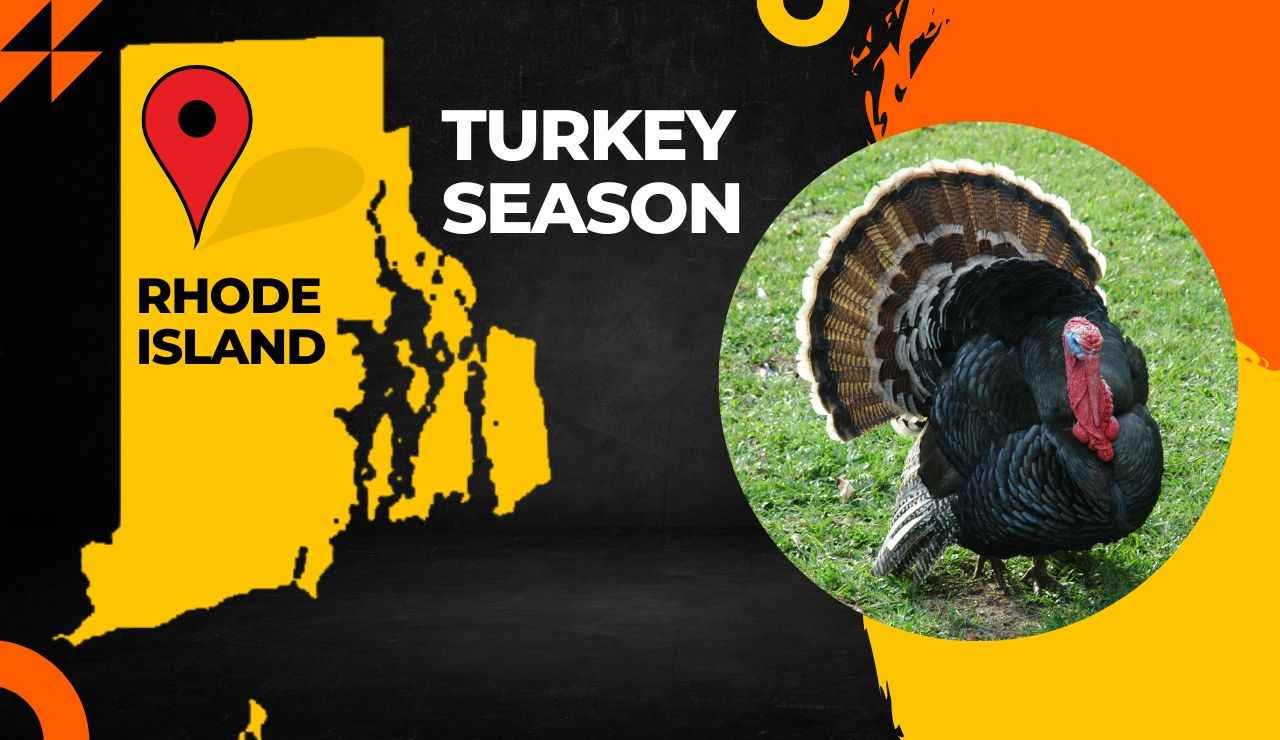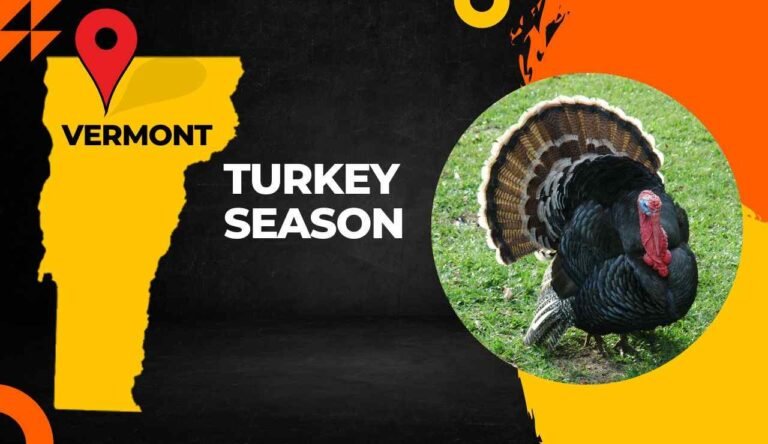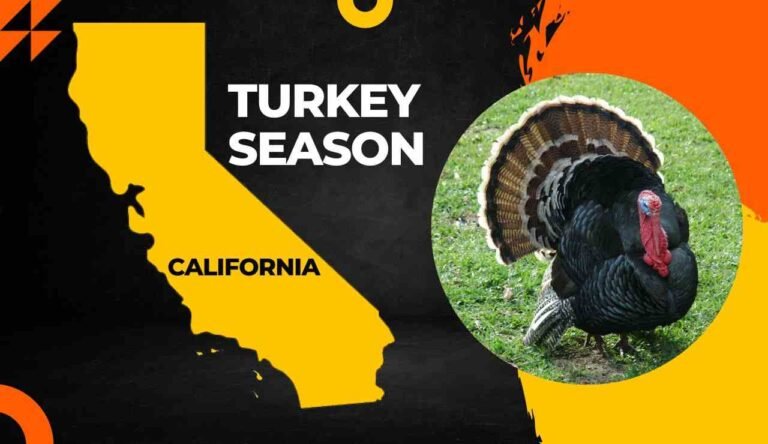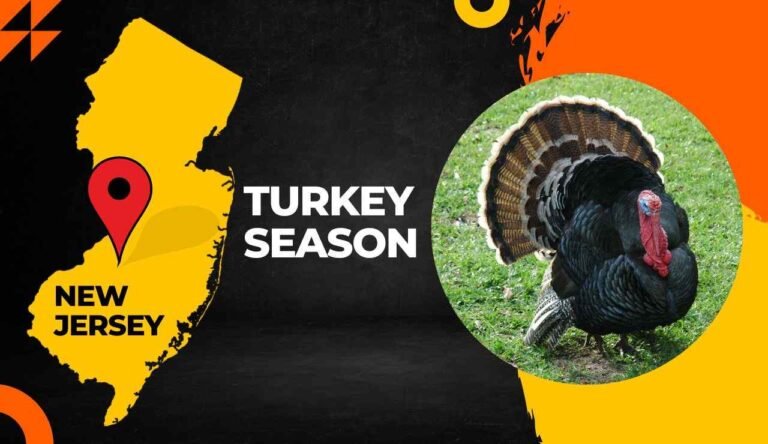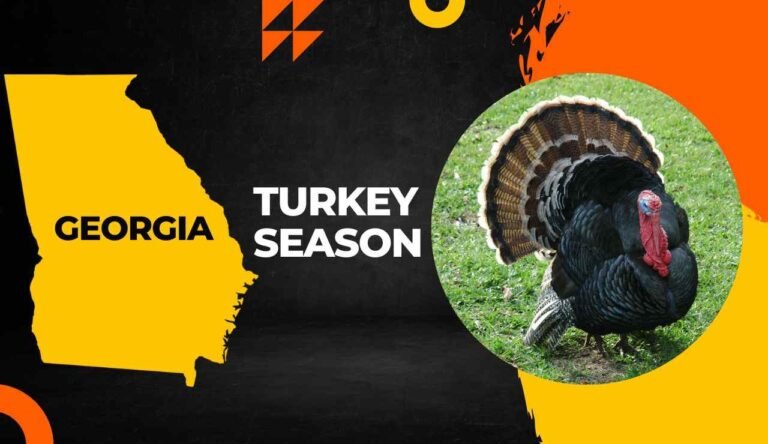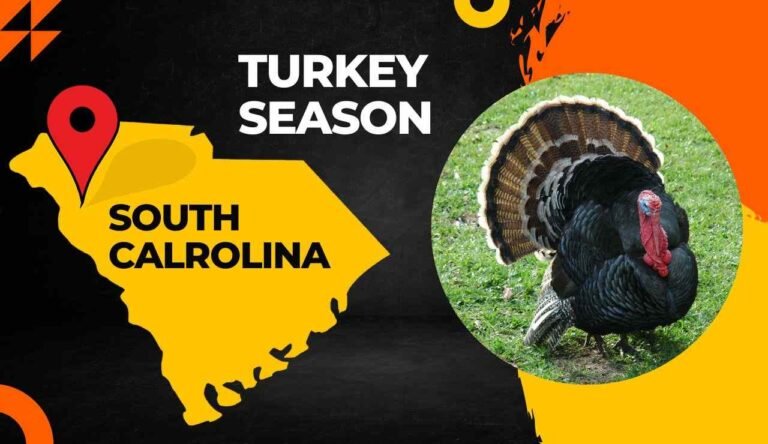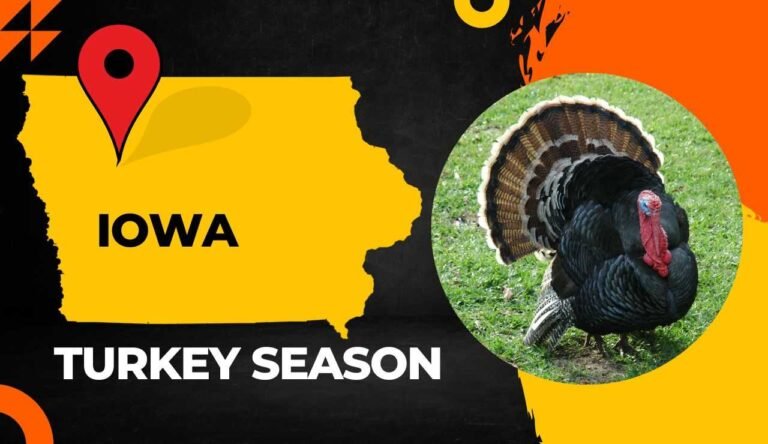Rhode Island Turkey Season 2023: RI Turkey Hunting Guide [Dates, Regulations, Limits & More!]
Welcome to the enthralling 2023 turkey-hunting season in Rhode Island! Hunters throughout the state are enthusiastically getting ready for the exciting game. There is something for everyone to look forward to with various hunting seasons, including the Youth season, the Paraplegic season, and the eagerly awaited Spring season. This year’s turkey season offers exhilarating adventures and priceless outdoor memories, whether you’re an experienced hunter or new to the sport. Therefore, gather your supplies, hone your abilities, and prepare for a thrilling turkey hunting season in Rhode Island!
Rhode Island Turkey Season 2023
The public spring turkey hunting season is scheduled to start towards the end of April. Hunters look forward to this chance to go after these gorgeous birds all around the state. Hunters will have the opportunity to put their talents to the test and bring home a treasured harvest with a bag limit of two bearded turkeys. The turkey hunting seasons in Rhode Island are eagerly anticipated because they provide a special opportunity to get in touch with nature and experience the excitement of the hunt. Ensure you have a current hunting license and turkey tag as you prepare for the season, and educate yourself on the guidelines for turkey hunting in Rhode Island. Prepare yourself for an outstanding 2023 turkey hunting excursion in Rhode Island by cleaning up your gear and honing your calls.
Spring Turkey Hunt
| RI Spring Turkey | Season Dates | Bag Limit |
|---|---|---|
| Regular Season | April 27 - May 21, 2023 | 2 bearded birds |
| Paraplegic | April 22 - 23, 2023 | 2 bearded birds |
Youth Turkey Hunt
| Youth Turkey Hunt | Season Dates | Bag Limit |
|---|---|---|
| Youth | April 17 - 23, 2023 | 2 bearded birds |
Fall Turkey Hunt
| RI Fall Turkey Hunt | Season Dates | Bag Limit |
|---|---|---|
| Fall Archery | October 1 - 31 | 1 either sex bird |
Hunting Licenses
| Licenses Types | Fees Online | Fees @ Vendor |
|---|---|---|
| Resident Hunting License | $21.00 | $23.00 |
| Resident Combination License | $38.00 | $40.00 |
| Resident Junior Hunting License | $14.00 | $17.00 |
| Resident Turkey Permit | $8.00 | $8.50 |
| Non-Resident Turkey Permit | $21.50 | $22.50 |
Tagging & Reporting
Rhode Island hunters may buy, hold, and utilize turkey hunting licenses under specified conditions. A hunter may get one all-lands turkey permit and one private land turkey permit to take one bearded turkey in spring. If the hunter has two spring turkey licenses and takes at least one turkey on private property, they may harvest two turkeys in one or two days. Hunters may buy, acquire, and use a fall either-sex archery permit on public and private land.
A person who kills a wild turkey must immediately notch the month, day, hour, and property type (private or public) to guarantee appropriate paperwork and hunting restrictions. During field removal, the hunter must keep the carcass and notched tag. The notched tag must stay on the carcass if the hunter leaves it in the field. The notched tag must stay on until the turkey is eaten or taxidermized.
| Permit Type | Conditions |
|---|---|
| Spring All Lands Turkey Permit | Allows taking one bearded turkey on all lands |
| Private Land Only Turkey Permit | Allows taking one bearded turkey on private land |
| Fall Either Sex Archery Permit | Valid for both public and private property |
The Rhode Island DEM requires harvest reporting on rio.ri.gov for wild turkey kills. Hunters must report turkey kills at Rhode Island Outdoor website by 11:59 p.m. The notched tag, which bears a harvest report confirmation number, must stay on the turkey’s corpse until it is eaten or taxidermized. The website provides hunters with detailed instructions on tagging and submitting their turkeys. Reporting your harvest helps DEM track Rhode Island turkey harvests and improve wildlife management.
RI Turkey Regulations
- Hunting with legal guns and bows is regulated. Shotguns up to 10 gauges and 4 shot sizes are allowed. Fixed blade broadheads must have a minimum draw weight of 40 pounds, whereas mechanical broadheads must have 50 pounds. Broadhead-tipped arrows must have two metal cutting blades. Mechanical broadheads in the “open” position must measure 7/8 inch or more at their widest point. These rules govern hunting using weapons and bows.
- Wild turkey hunting is legal throughout the state but check local firearm discharge laws. Spring, Youth, and Paraplegic turkey seasons allow firearms. Shooting hours for the Spring season, which includes the Youth and Paraplegic seasons, start 30 minutes before dawn and end at 1:00 p.m.
- Hunting requires a non-electric turkey-calling gadget. This contraption mimics turkey noises to entice them while hunting. To improve hunting success, turkey decoys may be used. These rules provide turkey hunters with the right gear.
- Online surveys are sought from Rhode Island turkey permit holders with verified emails in the online licensing system. These surveys assist DEM biologists in maintaining a successful wild turkey season in Rhode Island. The Division stresses collaboration and encourages all permit holders to complete the survey, regardless of hunting success or participation, to help the program succeed.
- Turkey’s hunting prohibits unlicensed guns, live decoys, dogs, baiting, and coordinated drives. These rules guarantee fair and ethical hunting, leveling the playing field for hunters and preserving the sport.
- Turkey hunters cannot use crossbows. Turkey hunters must follow laws that limit shotgun gauge and shot size, bows, and broadheads.
- Electric calling devices and other turkey-catching equipment are illegal. These limits attempt to preserve turkeys’ natural behavior and keep hunting tough using conventional calling and hunting abilities.
- Turkey hunting is fun and gratifying, letting sportsmen enjoy nature. Hunting is safer than other sports, but safety must be taken seriously. Hunters must put safety first. Follow the basic safety rules to guarantee a safe and pleasurable turkey hunt.
- Turkey hunting safety is crucial for a safe and fun experience. Avoid crowds and respect other hunters’ space to avoid mishaps. They prevent mistaken identification by positively identifying your goal and knowing what lies beyond it. Sitting against a large tree and wearing camouflage are key setup tactics. Avoid chasing turkey noises or signaling hunters. Avoiding gobbling cries also helps prevent attracting other hunters. These safety rules may reduce dangers and improve turkey hunting safety.
- Hunters must know how to discern the sex and age of a wild turkey, especially in spring when only bearded birds may be taken. To avoid killing fragile hen turkeys during nesting season, precisely identify the target before firing. Hunters may help scientists with conservation and management by examining behavior (strutting and gobbling) and color (black body with red, white, and blue head color). This understanding ensures prudent wild turkey hunting.
FAQs Regarding the Turkey Season in Rhode Island
When is the spring turkey season in Rhode Island?
There are three separate seasons throughout the spring turkey season in Rhode Island: the Youth season, the Paraplegic season, and the regular Spring season. From April 17 through April 23, 2023, young hunters can participate in turkey hunting during the Youth season. The next season for hunters with paraplegic circumstances will be held on April 22 and 23, 2023. Finally, the Spring season in Rhode Island runs from April 27 to May 21 of 2023, making it possible for hunters from all walks of life to go turkey hunting during this period.
How many turkeys can I harvest during the spring season?
As long as they have two spring turkey licenses and at least one turkey is shot on private property, hunters may often capture two turkeys on the same day during the spring season or each on different days. It’s crucial to refer to the rules for the current season since the particular bag restrictions may fluctuate.
Do I need a hunting license and turkey tag to hunt turkeys in Rhode Island?
Hunting turkeys in Rhode Island requires a current hunting license and a turkey tag. Before going turkey hunting, be sure you have the required licenses and tags.
How should I report my turkey harvest in Rhode Island?
The RI (DEM) must be notified when a turkey has been harvested by phoning the Division of Fish and Wildlife or utilizing the online harvest reporting page. Until the corpse is ready for preparation for food or taxidermy, the notched tag with the harvest report confirmation number must stay fastened to it.
- Louisiana Turkey Season 2026: LA Turkey Hunting [Dates, Regulations, Licenses & More] - January 5, 2026
- Kentucky Turkey Season 2026: Latest Hunting Dates, Regulations & Licenses! - January 5, 2026
- Kansas Turkey Season 2026-2027: Latest Dates, Licenses, and Regulations Now Available! - January 3, 2026
